What Is Insomnia and How to Deal With It?
by | Last Updated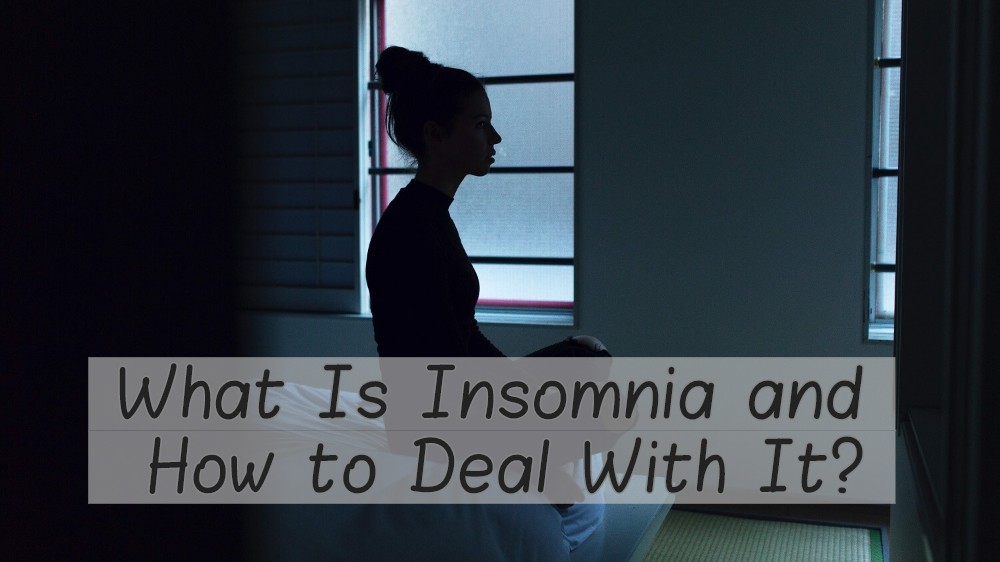
If you stumbled upon this article, you must be searching for a remedy for your sleepless nights.
And you’re not alone.
As much as 10% of US adults suffer from chronic insomnia, while 30 to 35% experience occasional sleeplessness or mild insomnia symptoms.
While this sounds terrific, insomnia is not a death sentence, and you are able to if not defeat it, then at least relieve it.
Below are some of the most effective tips on how to deal with insomnia, as well as scientific definitions and interesting facts.
What Is Insomnia, and What Are Its Main Symptoms?
Medically speaking, insomnia is the inability of falling or staying asleep.
But it’s not that simple.
The thing is, you can sleep for 8 hours and still experience insomnia.
Why is that?
You see, we are all different, and the amount of sleep needed for recovery can differ too.
So, to understand exactly whether you are experiencing insomnia, answer the following questions:
- How fast do you fall asleep?
- How do you feel after waking up?
- How good is your sleep? (You might need a sleep tracker for this one)
Only after that, you can pay attention to common insomnia symptoms:
- difficulty falling asleep and frequent waking at night;
- waking up very early in the morning;
- inability to make yourself fall back to sleep after waking up;
- irritability and drowsiness during the day.
See?
These can be the symptoms of almost any sleep disorder. That is why it is important to monitor and analyze how you sleep first.
Chronic insomnia may also be a symptom of other health problems, so be sure to check your overall health too.
What Causes Insomnia? Medical and Emotional Reasons Behind your Inability to Sleep
Understanding why you can’t fall asleep might be difficult if you are not a professional with a medical degree.
Thankfully, I’ve prepared a list of the main causes of insomnia for you.
Here they are:
- Emotional causes. Stress and anxiety often stand behind sleep loss. Moreover, they can drive you into a kind of vicious circle: anxiety interferes with sleep, and lack of sleep enhances the anxiety.
- Physiological causes. People suffering from various pain syndromes, allergies, hormonal disorders, and other health conditions are more prone to insomnia.
- Medication. Antidepressants, synthetic hormones, and stimulants often list sleep disorders among possible side effects.
Acute vs Chronic Insomnia: What’s the Difference?
Now, any illness can occur in an acute or a chronic form.
In the case of insomnia, the difference between the two is the following:
- acute insomnia can last from a couple of nights to a week, and it is often tied to some kind of stressful event.
- chronic insomnia is diagnosed when a person has more than three sleepless nights a week, or a constant lack of sleep for a month.
Both acute and chronic forms may come in periods between which a person does not experience a lack of sleep or any deterioration in sleep quality.
How to Treat Insomnia Most Effectively
#1 Reevaluate Your Habits
- Exercise. Physical activity is the best insomnia remedy if done right. Note that I’m not talking about intensive training, such as working out in a gym or jogging. Leave that for morning hours. But in the evening, dedicate some time to moderate activity, such as swimming, yoga, or cycling.
- Eat healthily. You can make a valuable contribution to improving your sleep if you eat properly and plan your diet in such a way that you receive all the necessary nutrients from food. Also, try not to overeat before bedtime: this almost always leads to a bad night.
- Cut down caffeine consumption. A healthy amount of coffee per day is no more than 3-4 cups. But for people with insomnia, it makes sense to refuse caffeine completely. Or, at least drink caffeinated beverages only in the morning and at noon.
- Get some sunlight. Sunlight improves synchronization of our internal clock with the change of day and night. Therefore, do not neglect to welcome morning sun.
Breathing techniques, such as the 4-7-8 method, or simply deep concentrated breathing can also effectively speed up your falling asleep.
#2 Optimize Your Sleeping Space
Less obvious, but equally effective insomnia cures are hiding right in your bedroom.
Yes, exactly!
Use these four rules for your sleep-friendly space:
- Make it cool. Scientists believe that cool temperatures are the key to good sleep. When our body temperature drops, the levels of melatonin — our sleep hormone — starts to rise. So, adjust the thermostat to 60-67°F and travel to the land of Nod.
- Make it dark. Another key point for melatonin production is total darkness. If your bedroom window faces east, blackouts are a necessity. Alternatively, you can use a sleep mask.
- Make it quiet. If you live in a city center or in a noisy area, then along with investing in soundproofing of your house, use earplugs. Also, you can purchase a white noise generator or just play a white noise soundtrack on Youtube.
- Make it sacred. Ideally, use the bedroom exclusively for sleep (and sex). Do not work, scroll social media or eat there. You see, our brain very quickly creates associations. And if the bed is no longer associated with a healthy rest, then it becomes more difficult to fall asleep in it.
#3 Learn to Relax
An ability to relax and switch from anxious thoughts can help you treat insomnia without medication. Here are some ways you can develop this ability:
- Dedicate some time to yourself. Do not underestimate the power of hobbies. It is proven that the brain produces serotonin and dopamine when we do what we like. These neurotransmitters allow us to relax and calm down.
- Keep a diary. Do not let bad or disturbing thoughts pile up, take notes! This is a great way to free your head. In addition, by making your thoughts and problems more material and distinct, it is easier to understand what you can do about them.
- Solidify your routine. Develop a relaxing evening ritual that works for you. It can include reading, taking a hot bubble bath, drinking a cup of warm tea or milk, etc. The main thing is to repeat the ritual every day in order to make positive and relaxing anchors in the brain.
You must have already heard this but haven’t tried yet: stop using gadgets at least an hour before bedtime. The blue spectrum light they provide is the killer of good sleep.
#4 Consult Your Doctor
Once I started following the aforementioned tips, my insomnia improved a lot. But I understand that this might not work for everyone as effectively as it did for me. So, if you haven’t experienced relief, it may be time to consult your doctor. They can give you more specific pieces of advice, which will work personally for you, such as prescribe some sleeping pills for insomnia.
Cognitive therapy is another good way to treat insomnia. It allows you to build healthy coping mechanisms aimed at eliminating anxiety, which ultimately improves the quality of sleep.
What If You Stay Awake for Days?
In short, nothing good will happen.
If you couldn’t get any sleep for more than three nights in a row, you may begin to experience hallucinations, paranoia, and other unpleasant symptoms.
However, there are people who can go much loner without sleeping, literally for days and even years. It should be noted that such cases are often caused by traumas, illnesses, or genome mutations.
Here are some examples.
- Randy Gardner. In 1964, he set a new Guinness record by going 11 days and 25 minutes without sleep (264 hours). Thus, he broke the previous record of 260 hours, which belonged to Tom Rounds. At the end of the test, he experienced short-term memory impairment and hallucinations.
- Peter Tripp. In 1959, he lasted 201 hours as a DJ on the radio in honor of the charitable marathon for the March of Dimes. However, in the last 66 hours, the medics who observed Peter had to give him stimulants so that he would stay on his feet.
- Thái Ngọc. A Vietnamese farmer lost sleep in 1973 after a bout of fever. He has not slept so far for more than 45 years. And in 2006, Ngọc admitted that he often feels grumpy. Scientists still do not understand the reason behind such long wakefulness.
- Paul Kern. A Hungarian soldier lost sleep 15 years after a bullet wound during the First World War. After regaining consciousness at the hospital, he found that he not only could not sleep but also did not even feel the desire to do it. However, this case is rather controversial, since there is no evidence of the truth except the newspaper article. After all, it happened a long time ago.
- Olivia Farnsworth. A case that still surprises scientists around the world is about a girl with a very rare genetic anomaly. She doesn’t feel pain, fatigue, and hunger. Olivia’s condition was described as chromosome 6 deletion, but this set of “super-abilities” is documented for the first time.
There is also a disease known as Fatal Familial Insomnia. It’s a genetic condition with frightening consequences: due to the inability of a person to fall asleep, the internal organs begin to fail very soon and the person dies.
Hopefully, your insomnia is not as severe as these cases. But I wonder if you have any personal hacks on how to deal with it. Feel free to share them below!

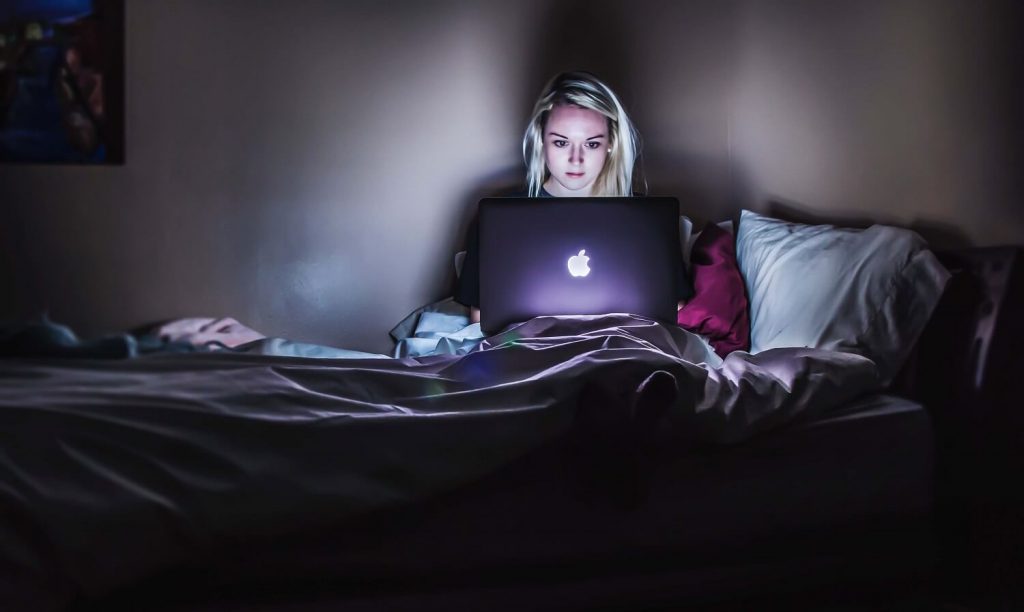
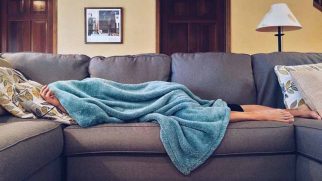
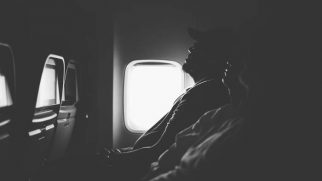

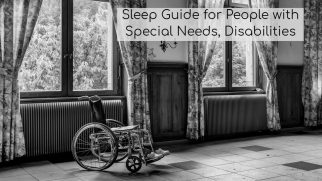
No Comments